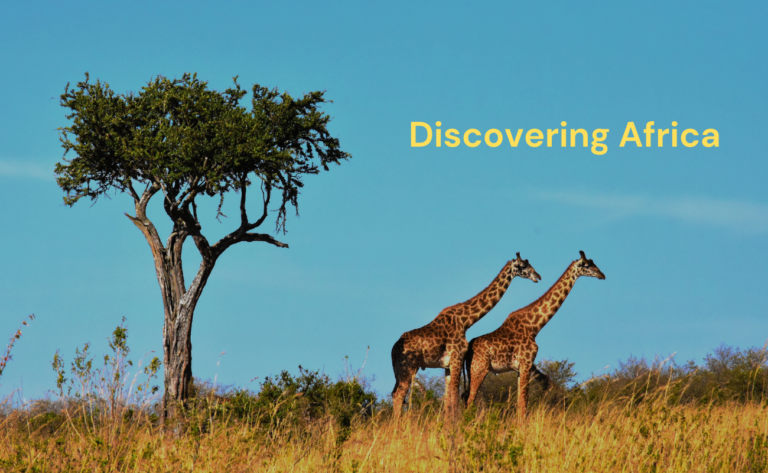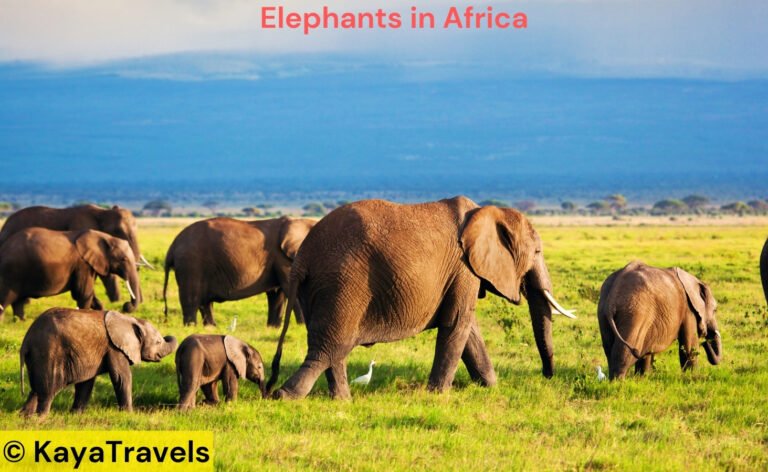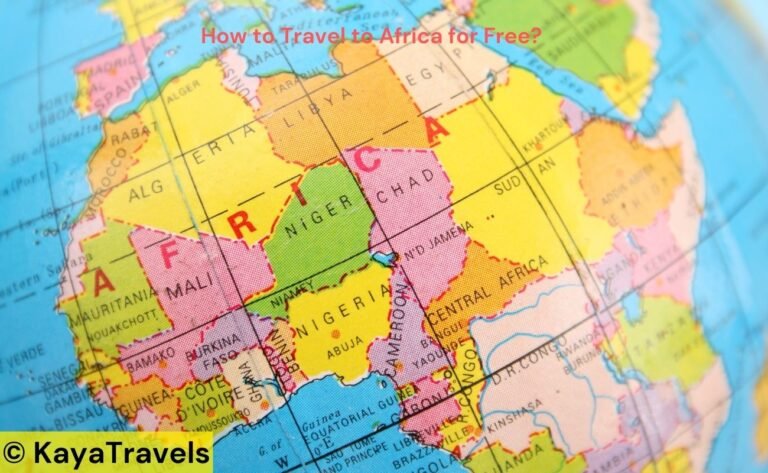Travelling to South Africa offers a rich tapestry of landscapes, wildlife, and culture guaranteed to create lasting memories. Timing your visit is critical for the best experience. The country’s diverse climate means there’s always something special happening, be it whale watching during the winter months or enjoying the vibrant urban life in summer.
If wildlife safaris are on your agenda, you’ll find that May to September, South Africa’s winter, presents the ideal opportunity for game viewing. Animals are more likely to gather around waterholes, making them easier to spot against the sparse vegetation. Travelling from June to August could offer lower prices and less crowded attractions for those looking to stretch their budget further.
However, do consider this to be where Cape Town and the Western Cape experience their rainy season, although the region still enjoys plenty of sunshine.
When considering your trip, planning around South Africa’s seasonality is advantageous to maximize your experience. Winter months lure in whale watchers and game park visitors, while the summer months from November to March are perfect for beachgoers and exploring the vibrant city life. All it takes is planning to ensure your South African adventure is notational.
Best Times for Wildlife and Safari Adventure
When planning your safari to South Africa, timing is essential for the spectacular wildlife in their natural habitat.
Kruger Natits Park
Kruger National Park, often just called Kruger, is one of the most renowned safari destinations in the world.
- Best Time to Visit:
- Winter Months (May to September): The dry winter months are ideal for wildlife viewing as animals congregate around water sources.
- Summer Months (November to February): It’s the birthing season, so you’ll see newborn animals, but the bush is thicker, making wildlife harder to spot.
Private Game Reserves
Adjacent to Kruger are numerous private game reserves which offer a more exclusive safari experience.
- Key Visiting Times:
- Dry Season (May to September): You get less vegetation and better chances of spotting elusive animals.
- Wet Season (October to April): The landscape is lush and green, and many animals have their young, making it great for photographers.
Weather Patterns and Seasonal Highlights
South Africa’s diverse climate offers unique experiences throughout the year. Knowing the weather patterns and seasonal highlights ensures you make the most of your trip.
Summer Season
Summer in South Africa runs from December to February. It’s the hottest period, with temperatures soaring:
- Coastal Regions: Expect temperatures between 25°C (77°F) and 30°C (86°F).
- Inland Areas: Temperatures can exceed 30°C (86°F), especially in the afternoon.
Summer is the time for beach visits and enjoying the outdoor nightlife. However, it’s also the rainy season in some parts of the country, where rain usually comes in short, heavy bursts.
Winter Season
Winter, between June and August, showcases a different side of South Africa:
- Temperatures: Cooler, ranging from 13°C (55°F) in some regions up to a mild 22°C (72°F) in others.
- Rainfall: This is the peak season for rain in places like Cape Town.
Winter is ideal for game viewing as animals are more active in the cooler temperatures and are easier to spot.
Transition Periods
Transition periods include fall (March to May) and spring (September to November).
- Fall: Temperatures start to drop, especially from March, with averages between 25°C (77°F) and 28°C (82°F).
- Spring: Pleasant weather returns with averages ranging from 20°C (68°F) to 30°C (86°F) in different regions.
These seasons are perfect for enjoying South Africa’s natural scenery as the landscapes transform dramatically. Spring, primarily, is known for its vibrant wildflower blooms.
Remember, South Africa’s vast geography means weather can vary significantly from region to region, so check local forecasts before planning activities.
Cultural and Urban Experiences
When planning your trip to South Africa, the cultural and urban experiences available in Cape Town and Johannesburg are not to be missed. These cities are teeming with history, language, culture, and culinary delights that cater to every palate.
Cape Town and the Western Cape
Cape Town, known as the Mother City, is a vibrant cosmopolitan hub with a diverse cultural scene. You’ll find various languages, including English, Afrikaans, and Xhosa. The city tells a tale of history not only through its museums but also through its streets and architecture.
- Attractions:
- Take a trip up Table Mountain for stunning views of the city.
- Visit Robben Island to learn about the country’s poignant political past.
- Restaurants: Cape Town’s food scene is bursting with flavours.
- Sample local dishes like bobotie or enjoy international cuisine in waterfront establishments.
Cape Town is also your gateway to exploring the picturesque Western Cape region, where you can visit the historic townships that hold the stories of the nation’s journey.
Johannesburg and Gauteng
Johannesburg, the active heartbeat of the country, provides a look into South Africa’s unique urban culture. Offering a blend of history, art, and politics, Johannesburg is the place to explore if you want to understand the South African way of life.
- Culture:
- Discover the Apartheid Museum and take a township tour for a sobering look at the country’s struggles and resilience.
- Experience the buzz of the local markets and the warmth of the people.
- Languages: While English is widely spoken, listen to regional languages such as Zulu and Tswana.
Restaurants here offer everything from traditional South African “braai” to trendy fusion cafes. If you’re looking for the pulse of modern-day South Africa, infused with the energy of its people, Johannesburg is the place you want to be.
In both cities, engage with locals to appreciate the mosaic of cultures. Whether through food, art, or conversation, your experiences will leave lasting memories of this dynamic country.
Health, Safety and Travel Essentials
Before you pack your bags for South Africa, you must be mindful of health precautions and security considerations to ensure a safe and enjoyable trip.
Health Precautions
Vaccinations: The Centers for Disease Control and Prevention (CDC) recommends staying current with routine vaccines. Additionally, Malaria is prevalent in certain regions, so that antimalarials may be necessary. Check with a travel health specialist for region-specific advice.
- COVID-19: Stay informed on any pandemic-related travel tips, such as testing requirements or PPE (Personal Protective Equipment) guidelines.
- Yellow Fever: Some neighbouring countries to South Africa require proof of yellow fever vaccination upon entry.
Security Considerations
Crime Rate: South Africa has a high crime rate, including violent crimes such as armed robbery, carjacking, and mugging. Always exercise increased caution, especially after dark in the central business districts of major cities.
- Travel Tip: Secure your valuables and remain alert when using GPS navigation to avoid high-crime areas.
- Visas and Documentation: Ensure all travel documents, including visas, are in order before departure. Keep copies in a safe place, separate from the originals.
Exploring the Natural Landscapes
South Africa’s natural landscapes offer an array of experiences, from the coastline to the peaks of mountains and the expanse of deserts. Each diverse setting presents a unique adventure, perfect for travellers looking to immerse themselves in nature’s beauty.
Coastal Retreats
The Garden Route and Western Cape beckon with their pristine beaches and opportunities for ocean exploration. Here’s what you need to know:
- Beaches: Soak up the sun at beaches along the Garden Route, known for their scenic beauty and various secluded spots.
- Diving: Get up close with marine life with scuba excursions in the clear waters of the Western Cape.
Enjoy picturesque landscapes while discovering the rich biodiversity of South Africa’s coast.
Mountain Escapes
Drakensberg Mountains offer you a haven for hiking and taking in panoramic views.
- Hiking: Trails range from easy walks to challenging hikes, catering to all levels of adventurers.
- Parks: Visit national parks in the region to experience the full majesty of Mountain Escapes.
Travel through the Drakensberg Mountains for a reinvigorating escape into nature.
Desert Adventures
Embrace the vastness and solitude of the Kalahari Desert and the Northern Cape.
- Landscapes: The unique desert landscapes have red dunes and diverse wildlife.
- Exploration: Traverse the area on foot or in a vehicle to fully appreciate the grand scale of the desert.
The Kalahari Desert’s sweeping dunes and unique geological features await your discovery.






